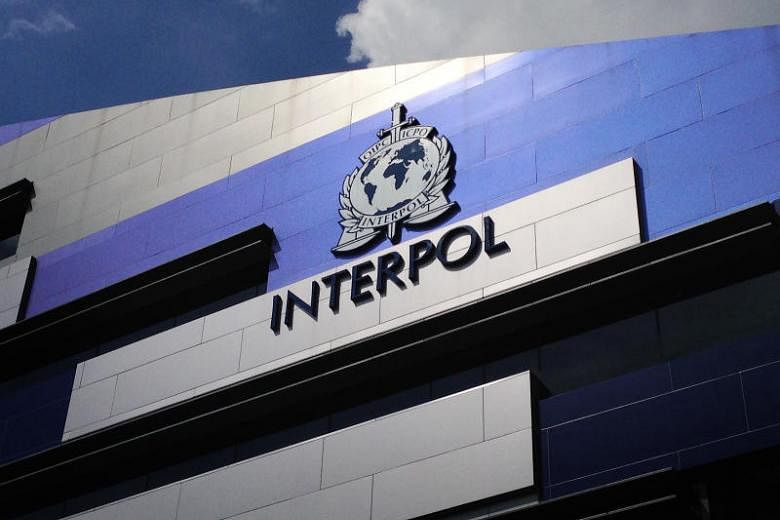SINGAPORE - An officer from the Singapore Police Force (SPF) will lead Interpol's new Regional Counter-Terrorism Node (RCTN), and will work with police units in the Asia-Pacific region to encourage the transfer of intelligence concerning terrorist activities.
The officer's identity and rank were not revealed.
Interpol's executive director of police services Tim Morris told the media on Tuesday (July 2) on the sidelines of the Interpol World conference that these regional nodes are important.
"The police officers from the region know the region best.
"Interpol needs to use their expertise, knowledge and experience, not only to help the fight against terrorism within the region, but also (to find out) how it impacts other regions around the world, whether it be Europe, West or East Africa, or even Latin America," he said.
Interpol has established similar counter-terrorism nodes in East Africa and West Africa.
Mr Morris said Singapore was chosen as the site of the Asia-Pacific RCTN because it is an important security hub in the region, adding that the agency and the Singapore Government have invested "substantial capital" to set up the Interpol Global Complex for Innovation.
The complex provides Interpol with the infrastructure to allow it to execute its functions.
The Asia-Pacific team will start with an initial six officers, which includes the SPF officer. Each officer is skilled in various aspects of fighting terrorism.
The team will have access to the 18 Interpol databases that provide, for example, information on foreign terrorist fighters, the social media platforms that terrorists use, and their travel patterns and mode of transport.
"Interpol believes such a network is important if police forces around the world are going to be connected in an effective way to fight terrorism," said Mr Morris.
The three-day Interpol World conference is being held at the Sands Expo and Convention Centre at Marina Bay Sands.
It brings together law enforcement agencies, government bodies, academics and industry players to discuss challenges and solutions in areas such as cybercrime, drones and big data.
Speaking at the opening ceremony on Tuesday, Mrs Josephine Teo, Minister for Manpower and Second Minister for Home Affairs, said crime and terrorism are increasingly borderless and inventive.
As a result, law enforcement agencies in different countries must work together more by sharing information more quickly and pooling resources to coordinate transnational responses.
She highlighted three key developments currently reshaping the global security landscape.
First, everyone is now better connected, and while that brings about economic opportunities, Mrs Teo said it also has implications for border security and transnational crime.
The advancement of technology is the second key development. "It is being misused to steal data, incapacitate systems, spread false information, and evoke negative sentiments against others," she said.
Mrs Teo said the most worrying development is the polarisation in societies.
While divergent views on politics and religion have always existed, extremists these days have the tools to spread their message to a wider audience at a very low cost, she said.
"The result is self-radicalisation, a previously unheard of phenomenon. In this new landscape, otherwise ordinary citizens can become explosive nodes of destruction, without anyone noticing," Mrs Teo added.
She stressed that Singapore's Ministry of Home Affairs recognises the importance of innovation in policing, and prioritises the strengthening of its science and technology capabilities.
In his speech, Mr Jurgen Stock, Interpol secretary-general, said that work is under way to allow law enforcement agencies access to data collected by private companies.
Interpol is also building up counter-terrorism capabilities in Latin America and the Caribbean, he added.
However, there are obstacles to be overcome. These include the wide gap between legislation and enforcement around the world, with different national and legal frameworks proving a challenge in the exchange of information.


